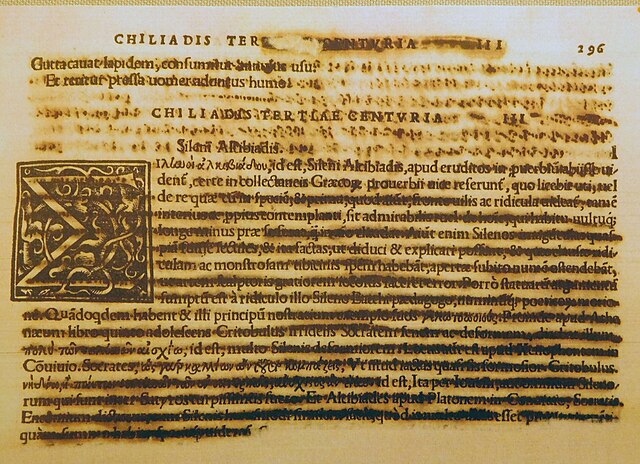Adagia is the title of an annotated collection of Greek and Latin proverbs, compiled during the Renaissance by Dutch humanist Desiderius Erasmus Roterodamus. Erasmus' repository of proverbs is "one of the most monumental ... ever assembled".
Title page of the 1508 edition, printed by Aldus Manutius, Venice
Portrait of Erasmus by Hans Holbein the Younger, 1523
Adagia title page 1537 edition (V. Ravani e soci, Venice), author's name struck out by Jesuits. Biblioteca di Brera
Adagia 1537 edition page 296, Sileni Alcibiadis, heavily censored by Jesuits
A proverb or an adage is a simple, traditional saying that expresses a perceived truth based on common sense or experience. Proverbs are often metaphorical and are an example of formulaic language. A proverbial phrase or a proverbial expression is a type of a conventional saying similar to proverbs and transmitted by oral tradition. The difference is that a proverb is a fixed expression, while a proverbial phrase permits alterations to fit the grammar of the context. Collectively, they form a genre of folklore.
From the French proverbial phrase "Je me mêle des oies ferrées" – "I concern myself/meddle with shoeing geese." From a misericord at the Abbey of Saint Martin aux Bois (Oise), France
"Pearls before Swine", Latin proverb on platter at the Louvre
"Who will bell the cat?", comes from the end of a story.
A rolling stone gathers no moss.








